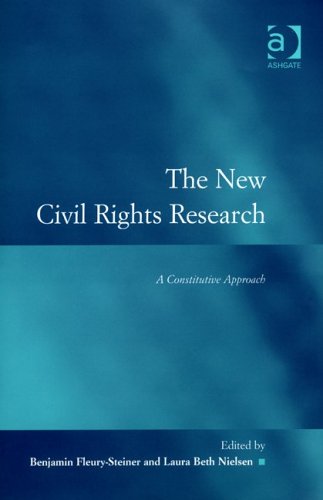Law, Justice and Power
1 total work
The New Civil Rights Research
by Benjamin Fleury-Steiner and Laura Beth Nielsen
Published 28 June 2006
Bringing together some of the most innovative and important research on civil rights law and legality, this book draws on narratives of individuals from a variety of contexts to provide a rich and contextualized understanding of what happens when law interacts with other competing systems or forms of social organization. By privileging the real world, lived experiences of those most influenced by rights, the collection moves beyond the traditional polarizing debates, and unlike other research in the field it presents a constitutive approach to rights that is not reducible to a simple 'for or against' rights formula. While this complex consciousness approach often contributes to the reproduction of dominant-subordinate social relations, it also allows for spaces of resisting existing hierarchical structures embedded in various law-related sites. This volume combines an extraordinarily diverse array of opinion, ranging widely over both traditional contexts for rights debates (employment discrimination, educational justice, welfare rights etc), into more modern settings (street harassment, same-sex marriage etc).
The result is a fascinating recasting of rights as culture or consciousness and a seminal reflection on the reality of rights in contemporary American society.
The result is a fascinating recasting of rights as culture or consciousness and a seminal reflection on the reality of rights in contemporary American society.
